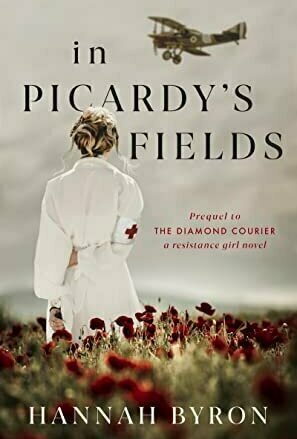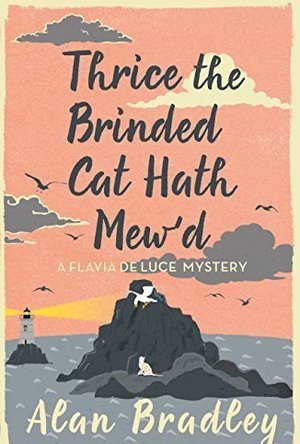
Lost Stations of Yorkshire the West Riding
Book
In 2005 Nick Catford, a member of Subterranea Britannica, started the Disused Stations website with...
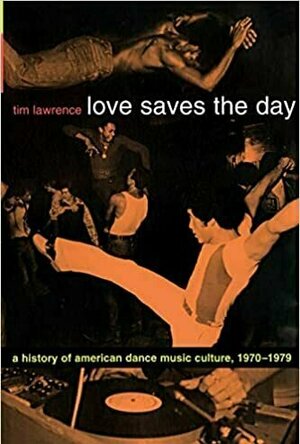
Love Saves the Day: A History of American Dance Music Culture
Book
Disco is the music that America tried to forget. By the end of the 1970s "Saturday Night Fever"...
Hazel (1853 KP) rated In Picardy's Fields in Books
Nov 27, 2020
The author, Hannah Byron, accurately describes the devastation and dangers the characters faced both in Paris and at the front. Flowing seamlessly from scene to scene, Byron paints a dark picture of life in wartorn France at the same time as weaving a captivating story. Agnès is a reticent but strong woman, a stark contrast from the stuck-up Madeleine, used to getting her way. Yet both characters develop, forced to face horrifying circumstances. While Agnès becomes more confident, Madeleine uses her head-strong determination to secretly help the allied soldiers, even if it means putting herself in danger.
Whilst the war is the main feature of the novel, the author weaves themes of friendship and romance into the narrative. Although only two people narrate the story, In Picardy's Fields shows the importance of working together and putting aside prejudices. The undercurrent of a developing romance brings a sense of hope that everything will end happily, yet the reader also knows nothing is safe during wartime. With each turn of the page, disaster could befall the characters, which makes for a gripping read.
Hannah Byron admits she is not a medic or war expert, yet she undertook extensive research to make In Picardy's Fields as accurate as possible. She also confesses it is unlikely a female doctor went to the front lines, yet as a work of fiction, this does not matter, especially as Agnès's profession is key to the story.
Authors have written novels about the World Wars ad nauseum to the point that writing an original story seems impossible, but Hannah Byron proves this assumption wrong. In Picardy's Fields feels almost modern in some respects, despite being set in the 1910s, which adds a freshness to the story. These women, these characters are just like you and me, living in a time we could not possibly understand.
In Picardy's Fields is a fantastic debut novel and Hannah Byron is a writer to keep an eye on.
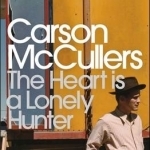
The Heart is a Lonely Hunter
Carson McCullers and Kasia Boddy
Book
Carson McCullers' The Heart is a Lonely Hunter is a powerful exploration of alienation and...
Faith of Our Families: Everton FC, an Oral History
Book
It is known as The School of Science, a pioneering institution from the game's inception as a...
Alex Kapranos recommended track Golden Apples by Country Teasers in Destroy All Human Life by Country Teasers in Music (curated)
David McK (3251 KP) rated Blood's Game in Books
Jan 30, 2019
This, however, would be the first time I had read one of Donald's novels that concerned a different central character, and that had a different setting: would it, I wondered, be more of the same, or would it have it's own 'feel'?
The answer, I can now say, is the latter.
Replacing Alan-a-Dale with Holcroft Blood, and told in the more traditional her-and-know third-person narrative (instead of the conceit of an elderly Alan recalling his youthful adventures with Robin Hood), this particular novel deals with the (attempted) theft of the Crown Jewels from the Tower of England during the reign of King Charles II, not long after the restoration.
While that (attempted) theft is carried out by Thomas Blood - who was caught red-handed but later, incredibly, was granted a pardon by Charles II - this novel does not have Thomas as the central character: rather, instead, we follow the fortunes of his youngest son Holcroft: a son who, throughout the course of this novel, becomes friends with Sir John Churchill, the future Duke of Marlborough (and Winston Churchill's direct descendant).
Whether true or not, young Holcroft is portrayed in this as suffering from a mild form of Asperger's Syndrome, able to easily code and decode correspondence sent to his master The Duke of Buckingham from his various spies and informants: a skill that comes in handy in this tale! I have to say, too, that the court of King Charles II comes across as incredibly decadent, full of scheming and back-stabbing rivals out wholly for themselves ...
I'd be interested in seeing where this series goes, especially as the next entry ([b:Blood's Revolution|36146468|Blood's Revolution|Angus Donald|https://images.gr-assets.com/books/1504033386s/36146468.jpg|57749834]) concerns itself - at least, according to the blurb at the back of this - with what is (in this country - Northern Ireland - at least) a very divisive and pivotal moment in English history.
Kristy H (1252 KP) rated Thrice the Brinded Cat Hath Mew'd (Flavia de Luce, #8) in Books
Feb 13, 2018
This novel is immediately Flavia, from the start, like picking up with an old friend. The beginning finds Flavia feeling a little lonely and sorry for herself until finding a corpse, of course. With Flavia back from Canada, it's a return to Bradley's tried and true Flavia de Luce formula, but it's certainly not trite, or tired. While the plot is a bit twisty and keeps you guessing, as always, it's Flavia who is the true star. In this book, we see our heroine growing up a bit: not just in age, but in maturity. Thankfully, though, she's still our Flavia, with her feisty spirit and deep love of chemistry. Truly, she's just a dear character and Bradley is amazing in how he captures her voice so perfectly.
These novels never fail to disappoint -- this one, as well. I will continue to highly recommend this series. This can certainly be read as a standalone, but you would be doing yourself a disservice if you don't start at the beginning of Flavia's journey.
I received a copy of this novel from the publisher and Netgalley (thank you!); it's available for U.S. publication everywhere as of 9/20/16.

Walshy: Paul Walsh: My Autobiography
Book
SOME footballers become one-club heroes having spent their entire careers playing in front of the...
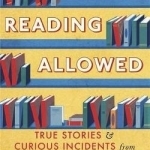
Reading Allowed: True Stories and Curious Incidents from a Provincial Library
Book
'Paling's deftly drawn vignettes are frequently funny, sometimes sad and occasionally troubling...
